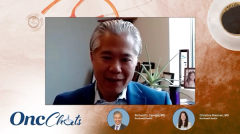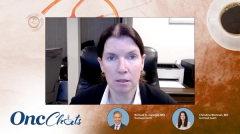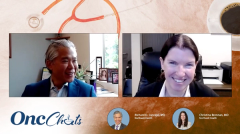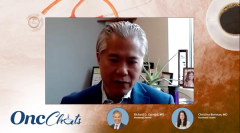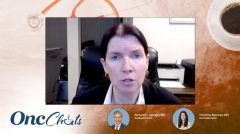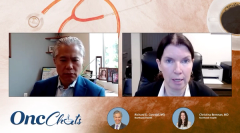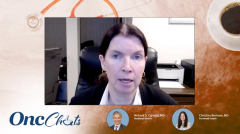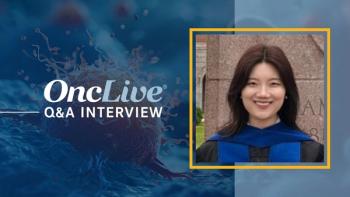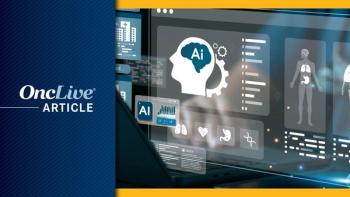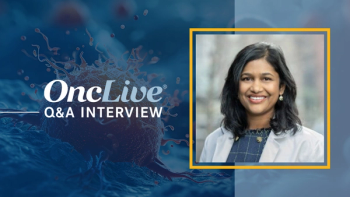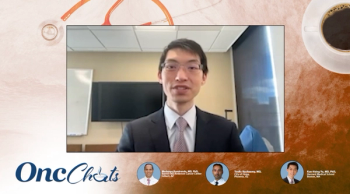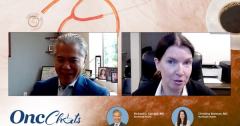
A Close Look at Clinical Trials in Oncology and Beyond: Leveraging AI
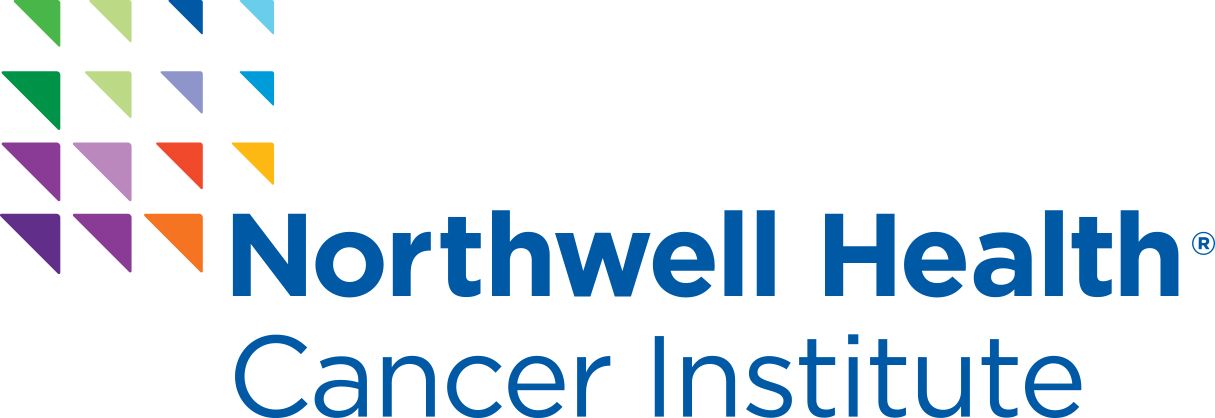
In this episode, experts discuss how artificial intelligence tools can enhance clinical trial recruitment, improve workforce efficiency, and more.
In this episode of OncChats: A Close Look at Clinical Trials in Oncology and Beyond, Christina Brennan, MD, MBA, FACRP, and Richard D. Carvajal, MD, of Northwell Health and Northwell’s Feinstein Institutes for Medical Research, discuss how artificial intelligence tools, like natural-language processing, can enhance clinical trial recruitment, improve workforce efficiency, and support diversity efforts.
Brennan: When we talk about recruitment, and I always read the statistics on it, it’s known to be that 80% of your patients that you’ll recruit to these trials are known to your institution; yet, we still have a hard time finding these patients sometimes. [To this end,] I know at Northwell, we’re really beginning to explore the AI space more. What are your thoughts on natural language processing and other ways to help aid us in recruitment?
Carvajal: I think amongst the many changes that we’re going to see with the rapid incorporation of AI, improvement in enrollment will certainly be one of them. We’ve started doing that in various ways using natural-language processing to identify patients with pancreatic lesions, for instance, who can be brought into the system—both routine clinical care and potential trial participation earlier on and that has been an incredible success. We are in the process of onboarding a platform called Deep6, which will allow for searching really discrete as well as [continuous] variables to help us build cohorts and identify the patients who may be eligible for these trials.
Brennan: I agree. You know, there are limitations to our electronic medical records, and we can’t keep with the “Let’s search the ICD-10 codes.” It’s not enough. Given that we’re discussing complexities of trials in general, we need support—whether that’s through AI [or something else—so that we can] really narrow down our eligibility profiles to then use those lists for our research workforce, and as you said, help the investigators and streamline the process. Let’s narrow down who we think qualifies for these trials and give these patients the opportunities.
These tools can also help us with diversity, equity, and inclusion; [they can help us] really narrow that scope down to make sure that we’re including those patients. I love that at Northwell we have a community affairs group, and I’ve partnered with them before, because they already [have] a number of zip codes that are focused for them [with regard to] food pantries and [other] healthcare [initiatives]; we should not reinvent the wheel. Let’s get to those communities that we know are already a focus.
Carvajal: The other piece that I’d love to see AI help us [with] is data entry and query resolution because a significant amount of time goes into all of that.
Brennan: I would love to see that; you're speaking my [language]. If we talk about our workforce, we have to discuss that because we’re definitely still in a crisis mode with the workforce. I know it’s not unique to clinical research, but this is something that we feel, and the burden on the research staff [cannot be denied]; it’s just such duplicative efforts. We [have come] so far [with] technology, but we can’t figure out how to or we’re just not utilizing abstraction directly from the electronic medical records and getting it into the electronic data capture systems [in a way that] we’re not duplicating efforts. Again, we’re focusing on the recruitment and the follow-ups that the patient needs, and not being burdened by the overwhelming amount of data that are required. I agree.
I don’t know if you’re aware, but [since] we’re talking about the workforce, [this] was surprising to me. I sit on the Board of Trustees for the Association of Clinical Research Professionals [ACRP], and in the same way that we would think of the American Medical Association as physicians, it’s so nice for researchers to have an organization that they can relate with and be a part of for their profession. But when we say the profession, for the US Census Bureau, clinical research is not a recognized career. I think this is very important [to note], and it’s a mission that we’re tackling through ACRP to really make it known. We’re making progress [on this front,] because down to the high school and college levels, people are not familiar with clinical research as a career. If you start to ask people about how they got into a career in clinical research, a lot of people will say, “By chance. I fell into it. An investigator asked me to help out on a clinical trial, I loved it, and the next minute, I went into that career.” But we’re not hearing about these [experiences] at the college level.
Carvajal: Right and one of the things that you and your team are doing here is making sure that our existing team has a ladder so they can progress and grow. Because it’s really important as we do find these people who are tough to find.
Brennan: Yeah, it really is, but I’m excited.


